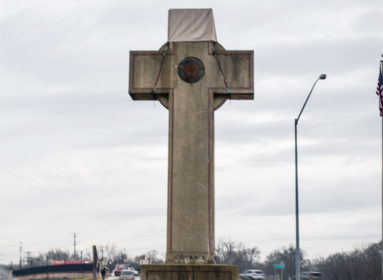
Laudato Si’, Pope Francis’ powerful new encyclical, is likely to go down in history as the most important religious text of our time. But how long history lasts, at least on earth, will depend on how much attention we pay to it.
The encyclical begins with climate change, and although the issue consumes only a modest portion of its nearly 200 pages, it is central to all that follows. There is, Francis says, “an urgent need to develop policies so that, in the next few years, the emission of carbon dioxide and other highly polluting gases can be drastically reduced.” That, it’s important to recognize, is now officially part of the social teaching of the Catholic Church.
Francis does not mince words when explaining the inability of international politics to address this urgent need. “The failure of global summits on the environment make plain that our politics are subject to technology and finance,” he writes. “There are too many special interests, and economic interests easily end up trumping the common good and manipulating information so that their own plans will not be affected.”
In blaming “economic interests,” Francis shows a little appreciation, but not much, for the many benefits that market capitalism has conferred on the world. He’s drawn criticism for this position, as indeed have past popes who have expressed less than full-throated support for the dominant economic system of our age.
But Laudato Si’ is not an encyclical about economic systems. It’s an encyclical about creation and the natural environment, from the global to the local, and what effects climate change and environmental degradation have on humanity at large, and especially on the poorest and most vulnerable populations. The problem with the free market is that it is singularly ill-equipped to solve the environmental problems that it creates. These are “externalities,” and they can only be addressed through regulation in the political arena.
For Francis, it is critical that contemporary politics have the ability to regulate economic activity with a worldview that is about more than the acquisition of wealth. To that end, he proposes an “integral ecology” that recognizes the interdependence of all God’s creatures, protects the environment, and works for the common good.
Laudato Si’ may be Catholic teaching but it is also a very Jewish document. Its focus is firmly on this world, on how we must keep faith with God’s creation through our relationships with each other and with the earth itself. Again and again, the pope stresses the importance of preserving the earth for our children and our children’s children.
“We lack leadership capable of striking out on new paths and meeting the needs of the present with concern for all and without prejudice towards coming generations,” he writes.
“The establishment of a legal framework which can set clear boundaries and ensure the protection of ecosystems has become indispensable; otherwise, the new power structures based on the techno-economic paradigm may overwhelm not only our politics but also freedom and justice.” It is important that we read, and heed, this powerful, passionate work. So that the earth may endure from generation to generation — l’dor v’dor.








 Southern New England Jewish Ledger
Southern New England Jewish Ledger










